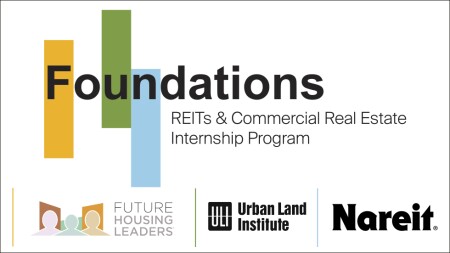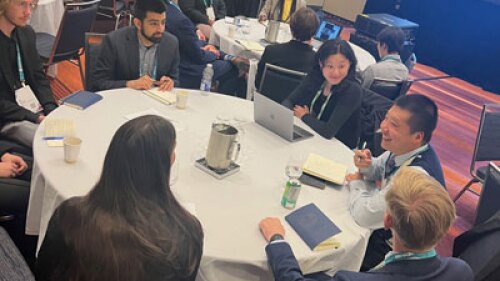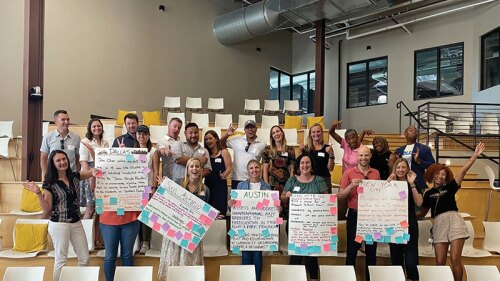An innovative pilot internship program aimed at advancing diversity in the commercial real estate industry is on track to launch its first cohort of students into paid 10-week learning and mentoring opportunities this summer at some of the nation’s leading REITs.
Known as Foundations: REITs and Commercial Real Estate Internship Program, the program is a joint initiative of National Association of Real Estate Investment Trusts (NAREIT), ULI, and Fannie Mae’s Future Housing Leaders (FHL). Students were selected for the Foundations program in early 2022 and are now completing ULI’s 30-hour, comprehensive introduction to commercial real estate certification.
NAREIT senior vice president for industry affairs and social responsibility Nathaalie Carey says the internship came about after conversations with REIT CEOs last year revealed the challenge they face in recruiting diverse candidates to entry-level positions. “The recruitment pipeline is a major concern that many of our members are trying to address,” says Carey.
After concluding that an internship program was the most effective approach to tackle the issue, Carey looked for partners to understand and execute the vision. She turned to FHL, which already had extensive connections to colleges and students with diverse backgrounds, and ULI, for its broad perspective on the real estate industry and specific expertise in real estate education.
Cindy Chance, ULI executive vice president for Learning and Product Councils, explains that the ULI curriculum is specially designed to prepare students for the industry, regardless of their academic background. “What we recognized was that the lack of comfort with the nomenclature and the technical language of real estate was a real obstacle to students being successful,” she says.
In creating the curriculum, ULI tapped faculty from leading real estate research institutions, as well as ULI practitioner leaders, and created five conversational video-based courses. Students are also paired with an instructor.
Chance says the Foundations program is specifically focused on college sophomores but open to all students and recent graduates. “When young people don’t understand how much fun our industry is and how many opportunities there are, they tend to pursue other paths in school. We’re trying to get them hooked early enough to make a difference. It’s a huge industry and for many young people who didn’t grow up with folks in the industry at the breakfast table describing their work, it’s a completely mysterious world.”
Because the Foundations program is in the pilot stage, Carey says there will be plenty of opportunity to tweak the current structure by conducting a 360-degree review through the lens of participating students and employers and making the changes needed to create a competitive program for diverse talent.
Carey notes that in accepting students without traditional real estate exposure, employers are being asked to broaden their approach to finding qualified interns. The 30-hour certification taken prior to the internship beginning is expected to help “level the playing field,” she says.
Marcus Cole, director of Fannie Mae’s FHL, agrees that the program is striving to make employers think differently. “Historically, this industry has been very closed off,” says Cole. The Foundations program, Cole explains, is attempting to show that committed students can learn real estate skills regardless of their background. The ULI course, he notes, has “closed the learning curve and allows students to add immediate value when they’re placed in their internship.”
Carey says she hopes the Foundations program will offer a state-of-the-art and consistent approach to internships in the real estate industry. “We want to be competitive for high-quality students, but we also want to make sure that our employers are invested and will be able to recruit from a larger pool of talent.”
Looking ahead, Carey sees the need to scale the program to introduce hundreds, maybe thousands of diverse students to an industry that many do not even consider as a potential career field. To achieve that, other trade associations, many of which don’t have the resources to create a program, could potentially replicate the Foundations program approach. “What we’re building here is something that I believe can be white labeled...this is built to be a plug-and-play,” Carey says.
ULI’s Chance also sees many additional opportunities for partnerships in order to improve and expand the model. “Before that, we will have to evaluate the program. Success means that participants have a great experience, feel completely qualified to perform excellently in their internships, and get employment in the industry.”
Cole, meanwhile, is excited at the prospect of continued testing and learning in pursuit of a shared goal. “We’re on the cusp of something huge—the industry’s intentionality about making the workforce more diverse.”




